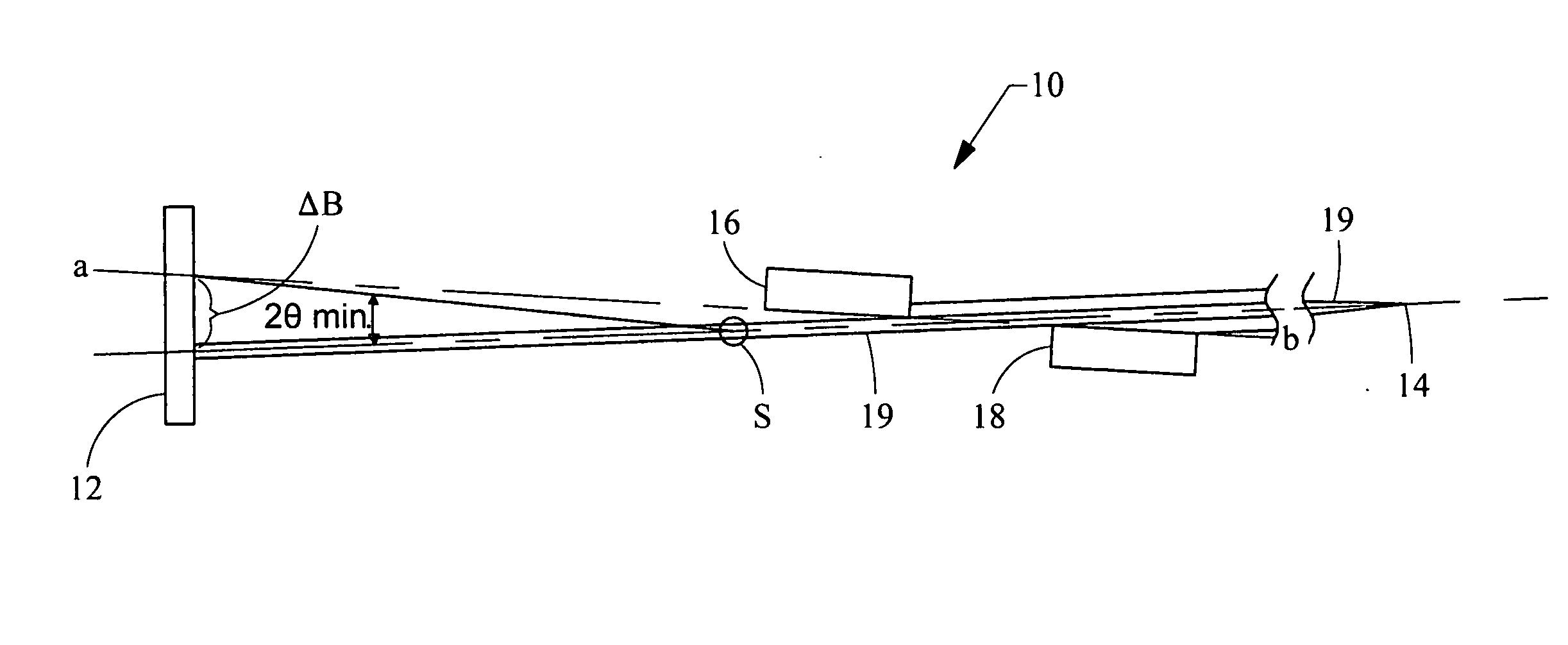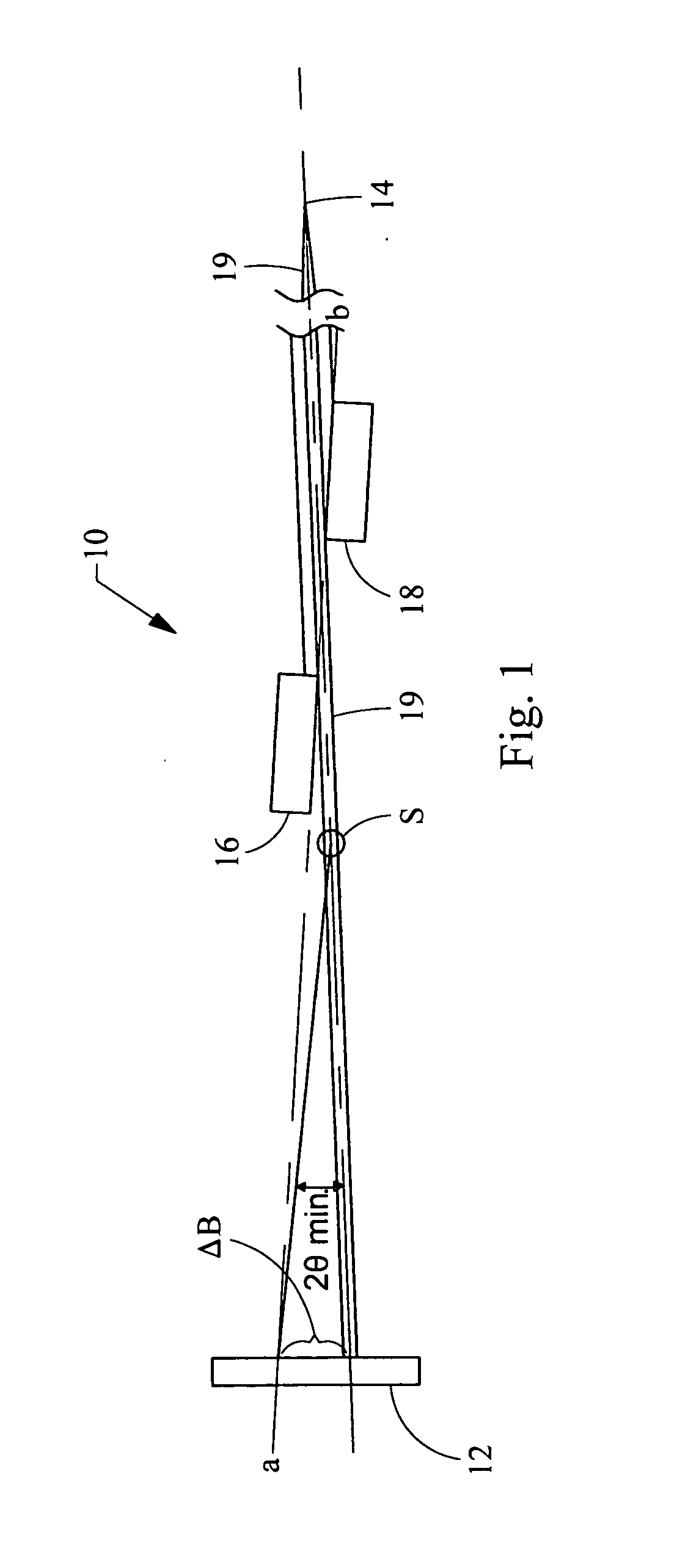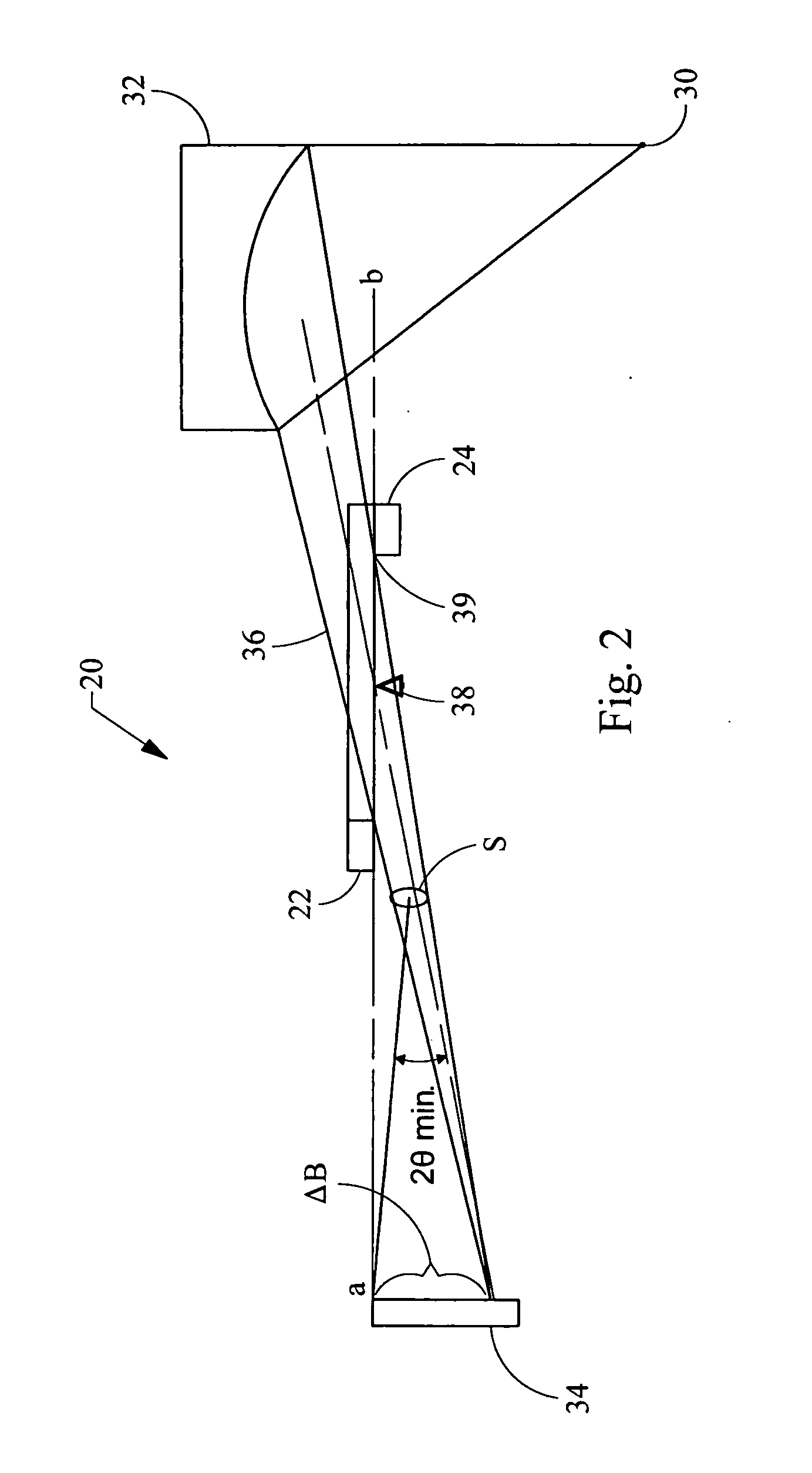Two-dimensional small angle x-ray scattering camera
a small angle, x-ray scattering technology, applied in the field of x-ray scattering cameras, can solve the problems of low resolution, low flux of pinhole cameras, and one-dimensional cameras, and achieve the effect of large angular rang
- Summary
- Abstract
- Description
- Claims
- Application Information
AI Technical Summary
Benefits of technology
Problems solved by technology
Method used
Image
Examples
Embodiment Construction
[0015]FIG. 1 depicts a Kratky camera 10 commonly used for small angle x-ray scattering. The camera 10 includes a detector 12 and an x-ray source 14. The x-ray source 14 is a one dimensional line source. X-rays are collimated by a pair of blocks 16 and 18 aligned in a common plane (i.e. the plane of the paper). The collimation blocks direct x-rays 19 at a sample (S), the scattering of which is captured by the detector 12. When the two blocks 16 and 18 are properly aligned, there is no parasitic scattering beyond the line extending between the points a-b.
[0016] A Ni filter can be employed to suppress Kβ radiation and soft continuous x-rays. The Kratky camera 10 has good flux and Qmin but the one-dimensional nature of the Kratky camera 10 makes it suitable for use with only isotropic samples. Moreover, the Kratky camera produces a scattered x-ray pattern that suffers from severe distortion know as smearing. Although many de-smearing routines have been proposed and implemented, some in...
PUM
| Property | Measurement | Unit |
|---|---|---|
| structures | aaaaa | aaaaa |
| distance | aaaaa | aaaaa |
| rotation | aaaaa | aaaaa |
Abstract
Description
Claims
Application Information
 Login to View More
Login to View More - R&D
- Intellectual Property
- Life Sciences
- Materials
- Tech Scout
- Unparalleled Data Quality
- Higher Quality Content
- 60% Fewer Hallucinations
Browse by: Latest US Patents, China's latest patents, Technical Efficacy Thesaurus, Application Domain, Technology Topic, Popular Technical Reports.
© 2025 PatSnap. All rights reserved.Legal|Privacy policy|Modern Slavery Act Transparency Statement|Sitemap|About US| Contact US: help@patsnap.com



